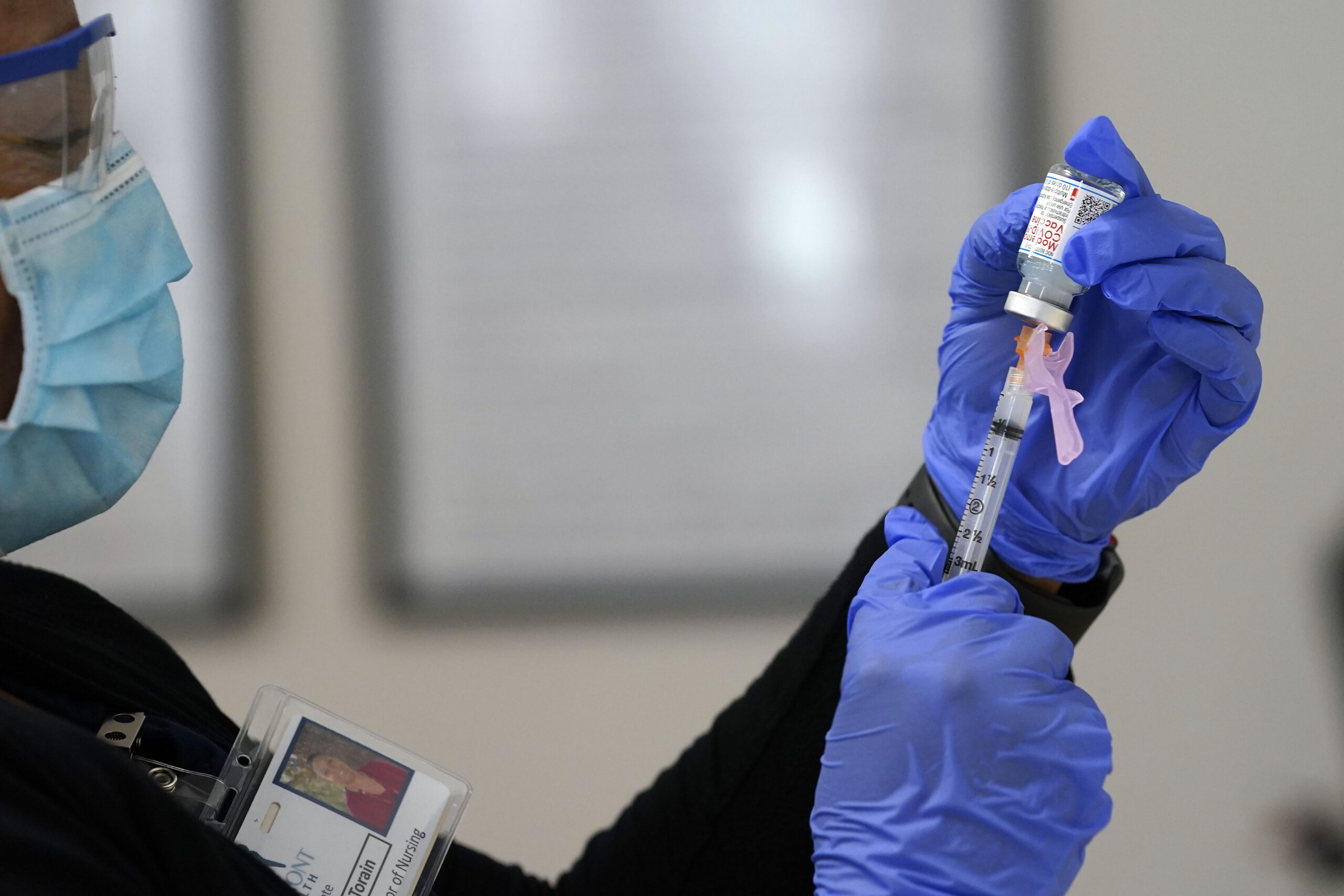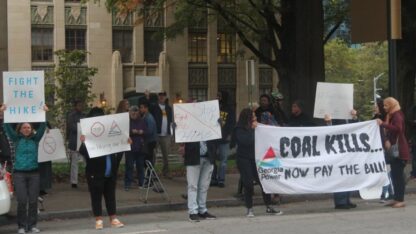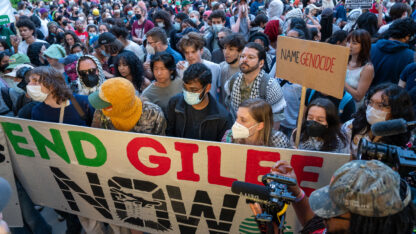Ga. Efforts To Ensure COVID-19 Vaccine Equity Could Be Hindered By Short Supply Of Doses

There’s growing concern that the communities hardest hit by the coronavirus won’t have equal access to vaccines.
Gerry Broome / Associated PRess file
Vince Williams, the mayor of Union City, says he’s been getting a lot of phone calls recently from constituents over the age of 65 looking for COVID-19 vaccines.
“When I get back to my office, I’m going to have an additional 10 to 25 calls: ‘Where do I go Mayor Williams? What can I do?’” he said, standing outside the Morehouse School of Medicine in Atlanta.
Williams says those kinds of calls are a sign that residents in his mostly Black city in southern Fulton County are getting left out of the state’s vaccination effort.
He shared that perspective with top state officials during a roundtable Wednesday morning at the Morehouse School of Medicine, just as he did last week with members of the Fulton County commission.
There’s growing concern that the communities hardest hit by the coronavirus won’t have equal access to vaccines.
Recent reporting from NPR found that vaccination sites are harder to find in predominantly Black and Hispanic neighborhoods across the South, including in metro Atlanta.
Georgia officials say they’re focused on making sure that’s not the case, but add their efforts might be hung up by limited vaccine supply.
“If you put the vaccination sites in the right communities, you will get people of color being vaccinated,” said Dr. Valerie Montgomery Rice, dean of the Morehouse School of Medicine.
She led the roundtable, which was attended by Gov. Brian Kemp and Dr. Kathleen Toomey, commissioner of the Georgia Department of Public Health.
About six weeks into the state’s vaccine rollout, some public health districts have started to work to provide better access to COVID-19 vaccines to underserved communities.
This week, Fulton County launched an initiative to provide rides to vaccination sites and to send mobile vaccination units into some communities.
Toomey says similar efforts are already up and running in Columbus and others are in the works around the state.
“We all recognize that just having a standing site isn’t going to reach the people who perhaps need it the most,” she said.
But the impact of those initiatives is unclear.
Kemp says the state is still working to gather and share racial and ethnic data for those who have been vaccinated.
He also says getting doses closer to people depends on how many the state has in the first place.
“We are planning now for not only mass vaccination sites, but how do we literally get to the local church, the local neighborhood?” Kemp said. “But really, all of this is gonna be based on supply.”
That could prove to be a major barrier.
There is already overwhelming demand for Georgia’s weekly allocation of roughly 154,000 vaccine doses. Kemp has said that allocation isn’t likely to change before the end of the month.








